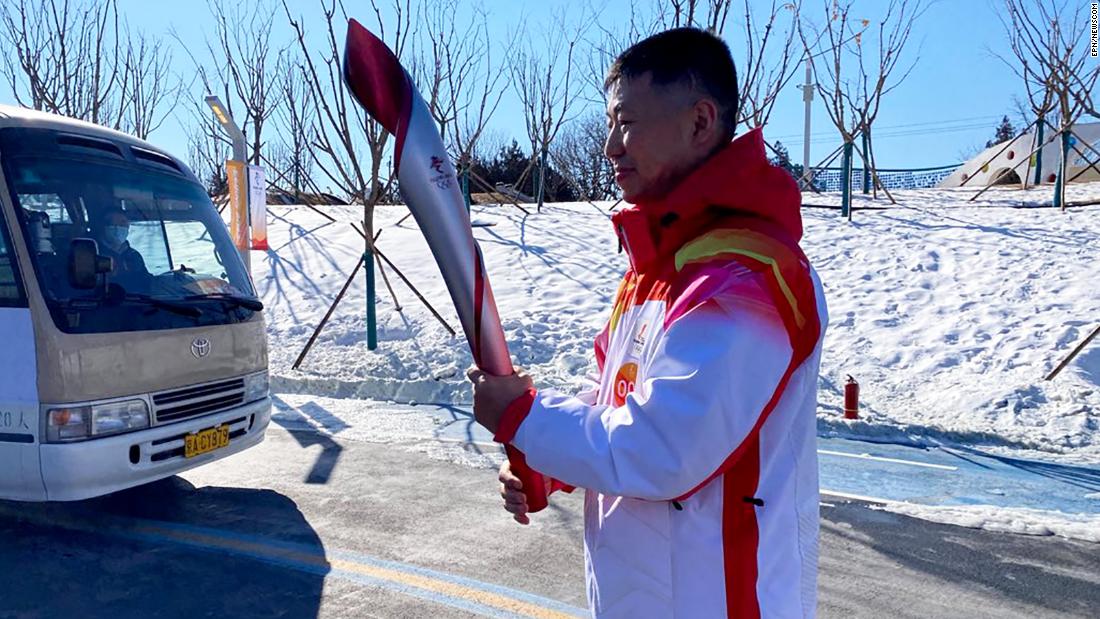India launches last-minute diplomatic boycott of Beijing Olympics over Chinese soldier
“It is indeed regrettable that the Chinese side has chosen to politicize an event like the Olympics,” Arindam Bagchi, a spokesperson of India’s Ministry of External Affairs, said in a televised speech on Thursday, where he announced the top diplomat at the Indian Embassy in Beijing will not be attending the Opening or the Closing Ceremony.
The decisions were sparked after images showed People’s Liberation Army commander Qi Fabao honored as one of the some 1,200 people to bear the Olympic torch as it moves across the Olympic competition zones in the lead-up to the lighting of the Olympic cauldron Friday evening. Chinese basketball superstar and former NBA player Yao Ming and astronaut Jing Haipeng were among other honorees to carry the flame alongside Qi on the relay’s opening day Wednesday.
The inclusion of Qi, who sustained a head wound during the fighting, sparked backlash in India for bringing fraught politics between the two nations into what is meant to be a “peaceful competition” among nations.
Prominent Chinese commentator Hu Xijin, former editor of the nationalist state-owned tabloid the Global Times, hit back on the Indian reaction, writing on Twitter of Qi’s participation: “What I saw from it was a call for China-India border peace and call for world peace. What’s wrong with this?”
India’s move further shortens the already truncated list of foreign diplomatic guests expected at the Games — which also marks Chinese leader Xi Jinping’s first time welcoming counterparts to China in well over a year, as China has maintained tight border controls and a stringent “zero-Covid” policy.
Australia, Britain, and Canada are among nations that joined a US-led diplomatic boycott of the Games, pointing to alleged human rights violations by China including of Uyghurs and other Muslim minorities in China’s northwestern region of Xinjiang — which Washington considers genocide.
Diplomatic boycotts mean that governments will not send delegations, but athletes continue to compete in the Games.
Other nations have declined invites to opening events due to the pandemic and Beijing’s Covid-19 controls.
![]()


